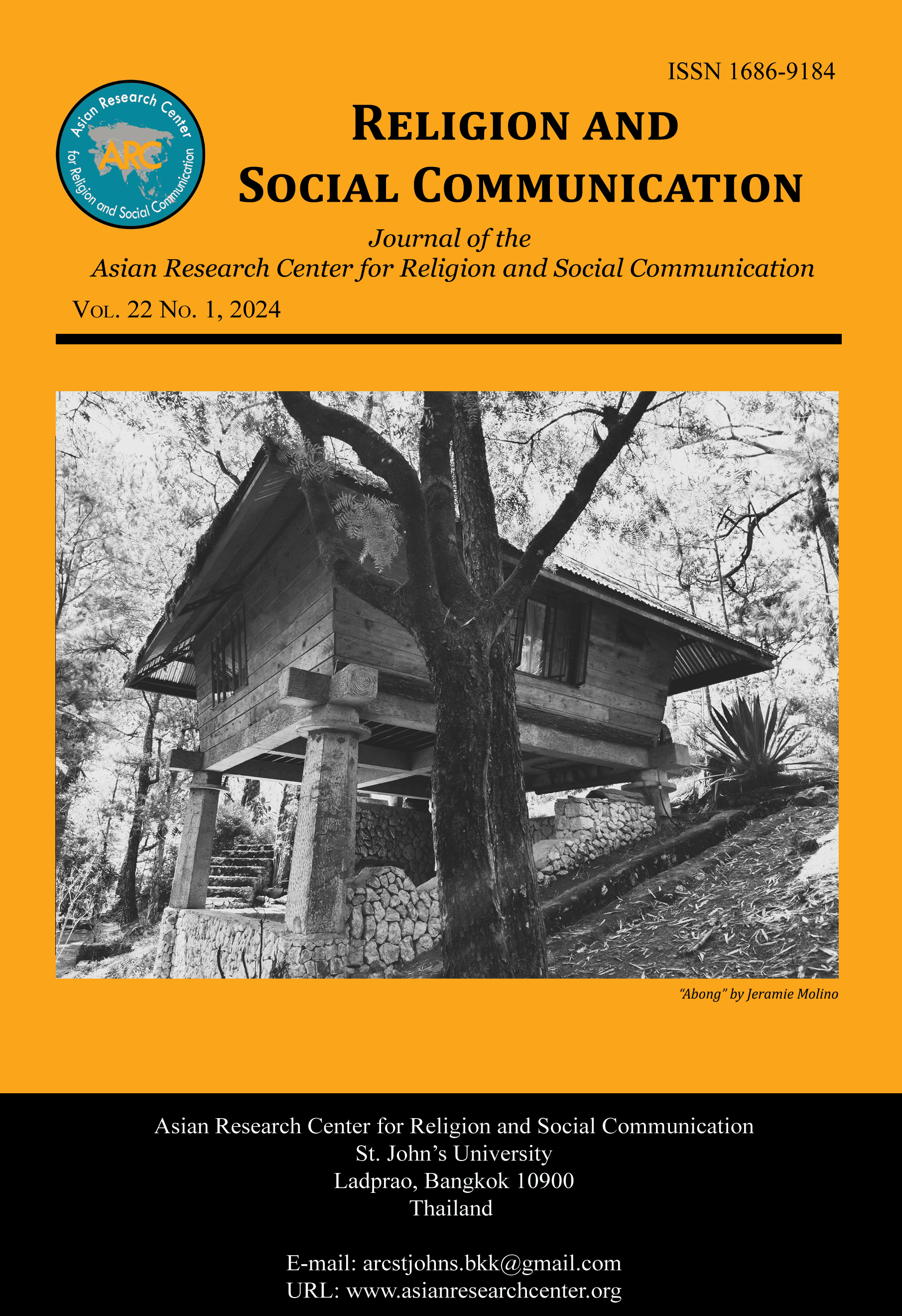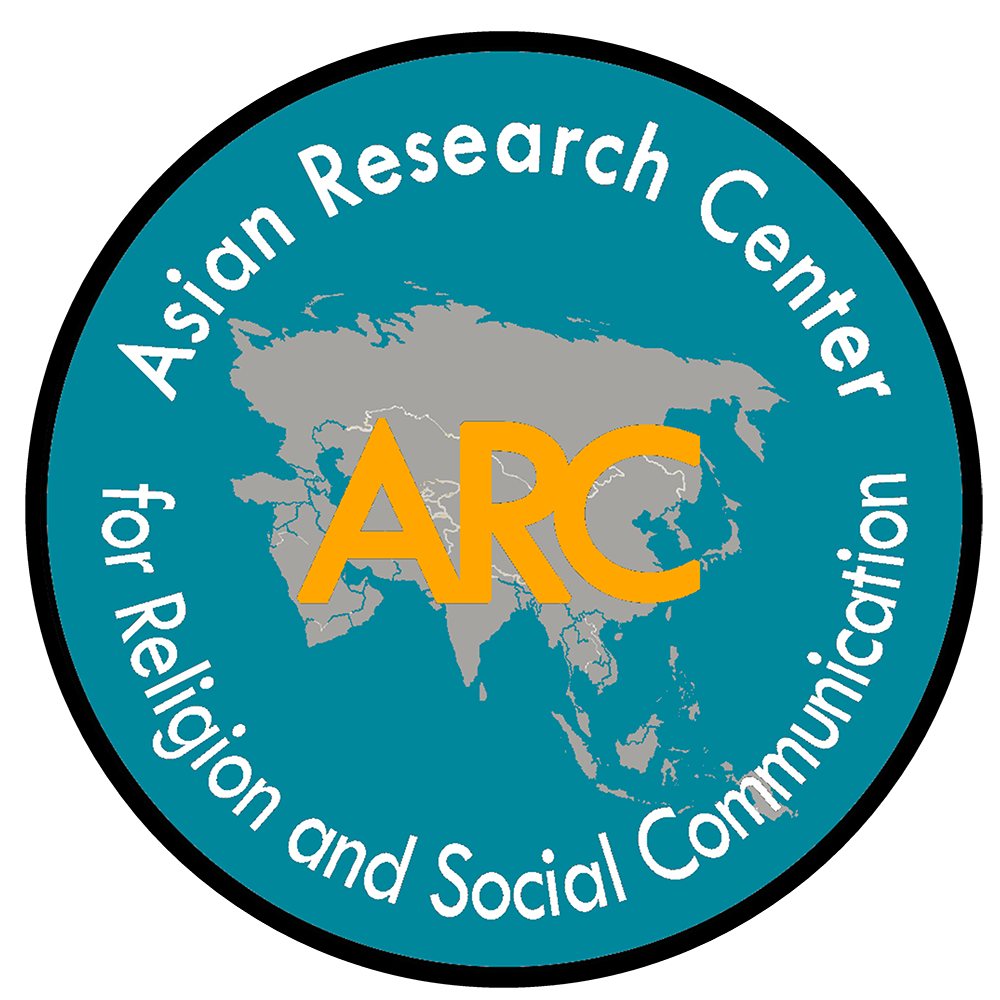Jumpstarting Ethno-Philosophy in Context: Ethics Discourse on Gawis ya Ngawi
RELIGION AND SOCIAL COMMUNICATION VOLUME 22, NO. 1 (2024)
ISSN 1686-9184
Author
Dennis M. Placido
Abstract
Ethnicity relates to the descriptive evaluation of culture, and when examined through a philosophical lens, it becomes ethno-philosophy. Any attempt to understand the complexities of human existence is an ongoing endeavor. Any notion of goodness and badness must emanate from a cultural milieu. Scrutinizing these concepts must be rooted in existentialism, as all experiences are continually interpreted lived experi-ences.. The phenomena of Gawis ya Ngawi from linguistic Kankanaey terms refer to mean good and bad. In context, the Kankanaey term “Gawis” literally expresses good things in life or well-being of the person and “Ngawi” illustrates the opposite dimensions of life; however, such distinctions evoke query regarding ethical discourse. This paper analyzes the nuances of the interpreted experiences of Gawis ya Ngawi and presents its possible ethical discourses within herme-neutics of appreciation and few implications in linguistic interpretations. Jumpstarting to interpret culture via ethical discourse opens up the need of contextualization. In the realm of human existence is human culture, a topic where philosophy continues to respect especially speaking about indigeneity. In philosophy, indigeneity promotes cultural reverence. This respect for cultural uniqueness necessitates a balance between philosophy and culture, continually redefining the relationship. Philosophy’s primary goal is to manifest the rich traditions of cultures within the context of lived experiences. Ethno-philosophy, as an understanding of culture, centers on clarifying mean-ings, exploring ethical dimensions, and interpreting language etymologies.
Keywords
Ipugaw, seg-ang (care), hermeneutics of appreciation
References
Bacdayan, Alberto. “Igorot Bridges to Success in North America.” In Igorot by Heart: Keynotes and Selections of a Generation, edited by John Dyte et al., 25-30. IGO: Igorot Global Organization, 2011.
Baggini, Julian. “The Ego Trick.” In 50 Philosophy Classics, edited by Tom Butler-Bowdon, 32-37. London: Nicholas Brealey Publishing, 2013..
Berger, Peter L. Facing up to Modernity. New York: Basic Books, Inc., 1997.
Botengan, Kate. “Rex Botengan: An Icon of the Igorot Nation.” In Igorot by Heart: Keynotes and Selections of a Generation, edited by John Dyte et al. IGO: Igorot Global Organization, 2011.
Bradley, Don, and Michael Stocker. “Why Idealize?” Ethics: An International Journal of Social Political and Legal Philosophy 115, no. 4 (2005): 154-161.
Butler, Judith. “Ethical Ambivalence.” In The Turn to Ethics, edited by Marjorie Garber, Beatrice Hanssen, and Rebecca L. Walkowitz, 15-28. New York: Routledge, 2000.
Centeno, Jeffrey. Cultivating the Self: Towards a Definition of Philosophy of Culture. SLU Research Journal 38, no. 2 (December 2007): 123-128.
Claver, Francisco, S.J. The Making of a Local Church. Manila: Claretian Publication, 2009.
Claver, Francisco, S.J. “The Essence of Culture in Our Lives.” In Igorot by Heart: Keynotes and Selections of a Generation, edited by John Dyte et al. IGO: Igorot Global Organization, 2011.
De Los Reyes, Aloma, and Angelo De Los Reyes, eds. Ethnographies of Major Tribes: Igorot – A People Who Daily Touch the Earth and the Sky. Baguio City: Cordillera School Group, 2003.
Depre, Albert CICM. From a Tiny Shoot: History of the RP CICM Province 1907-1982. Baguio City, Philippines: CICM House, 1945.
Enoch, David. “Doing and Allowing.” Ethics: An International Journal of Social Political and Legal Philosophy 115, no. 4 (2005): 766-772.
Gutierrez, Lazaro P. Baguio and Mountain Province in the Making. 1st Edition. Baguio, Mt. Province: Summer Capital Publishing House, 1955.
Joas, Hans. Do We Need Religion? On the Experience of Self-transcendence. New York: Paradigm Publishers, 2008.
Heiseg, James. Dialogues at One Inch above the Ground: Reclamations on Belief in an Interreligious Age. New York: The Crossroad Publishing Company, 2003.
Haar, Michel. Heidegger and the Essence of Man, Translated by William McNeill. New York: State University of New York, 1993.
Honeygosky, Stephen, ed. Religion and Spirituality: Bridging the Gap. London: Twenty Third Publications, 2009.
Lyotard, Jean Francois. Postmodern Condition: A Report on Knowledge, Translated by Geoff Bennington and Brian Massumi, Vol. 10. Minnesota: University of Minnesota Press, 1997.
Maclaure, Jocelyn, and Charles Taylor. Secularism and Freedom of Conscience. USA: Harvard University Press, 2011.
McLuhan, Marshall. “The Medium is the Message.’’ In 50 Philosophy Classics, edited by Tom Butler-Bowdon, 196-201. London: Nicholas Brealey Publishing, 2013.
Mercado, Leonardo. Political and Legal Philosophies: Western, Eastern and Filipino. Manila: Logos Publications, Inc., 2006.
Montemayor, Felix. Ethics: The Science and Art of Life. Metro Manila: National Bookstore, 1993.
Montemayor, Felix. Ethics: The Philosophy of Life. Manila: National Bookstore, 1994.
Palmer, Richard A., ed. The Gadamer Reader: A Bouquet of the Later Writings. Tubingen, Germany: Northwestern University Press, 2007.
Pooten, Richard. “Role of Parental Upbringing and Igorot Sense of Identity.” In Igorot by Heart: Keynotes and Selections of a Generation, edited by John Dyte et al. IGO: Igorot Global Organization, 2011.
Stenmark, Mikael, et al., eds., Relativism, Post-Truth in Contemporary Society. Switzerland: Palgrave Macmillan, 2018.
PAGES 169-191
DOI: https://doi.org/10.62461/DMP112523
Submitted: 10.20.2023; Accepted: 11.25.2023; Published: 1.31.2024





